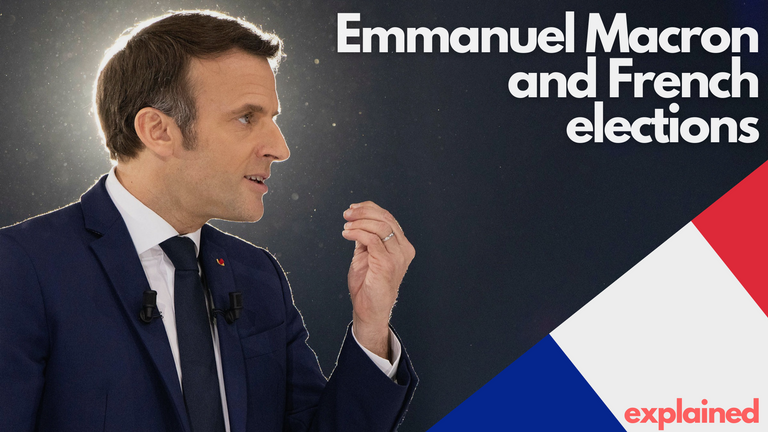
In the year 2017, Emmanuel Macron became the youngest French president in history. He did so without the support of any political party, winning 65% of the vote. In the process, he defeated Marine Le Pen, the far-right candidate. He broke apart the status quo that had dominated French politics since the end of the second world war. The socialist party and Les Republicains which had alternated in power for decades fell apart. Macron promised to move beyond the right-left political divide. His vision was for an innovative and resilient France within a strong European Union. But his presidency has not been an easy one. Massive social discontent with his policies and reforms and the coronavirus pandemic have pushed him into the mold he intended to break. So how did Macron come to power and will he be able to keep it.
To understand Macron's rise to power. We have to understand the disillusionment that took place with the French major political parties in 2017. To do that, we have to go back to the French presidential election of 2007. TThere are more voters in the center, but there are enough outlying ones as well. In 2007, they elected Nicola Sarkozy, a center-right politician, his campaign slogan ' works more to earn appeal to the middle class, but he also pushed a discourse on national identity voters from the center-left to the fringes of the far rights voted for him. But he soon faced a crisis.
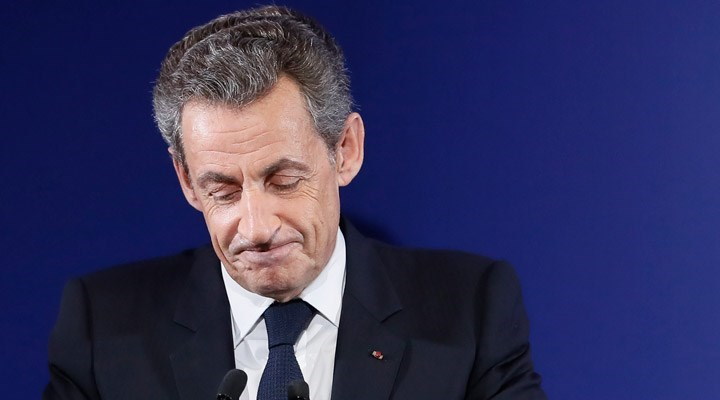
Nicola Sarkozy
As the economy declined, Sarkozy was unable to hold his promises, and identity politics became the center point of his presidency and his party moved to the right, this scared off voters of the center-left. And in the 2012 presidential election, they voted for the socialist candidate. he left his party. It continued to shift to the right, and it was divided by political infighting and scandals. The party was even accused of receiving money from Libyan dictator, Muammar Ghadafi to finance the 2007 presidential election campaign.
Francois Hollande was elected promising a radical agenda. He called himself the enemy of finance and promised a 75% tax rate for the rich. But when his measures failed to materialize the left-wing of his party, rebelled against him, but he soon faced a very different crisis. Terrorist attacks rocked his presidency and his security measures saw him push for law, removing citizenship from terrorists with dual nationality, lost him the support of his political party. The sluggish economy lost him the support of the French. With popularity dipping down to 4%, he couldn't stand for reelection and his socialist party was dragged down with him and the opinion polls.
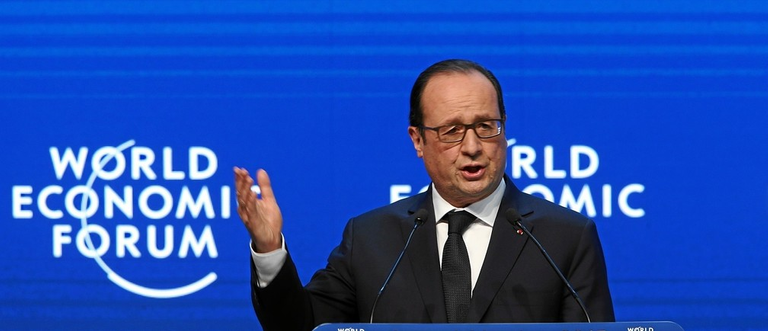
Francois Hollande
That's where Emmanuel Macron comes in. He first started as an advisor to fossil land and later became an economy minister. In 2015, he was a popular media figure, promising young people that if they worked hard, they could be billionaires. He secretly plotted or run for the presidency and left the socialist party in 2016 to fully focus on the campaign. You promise to govern past France's left-right political divide, balancing a right-wing economic program with a progressive environmental and social policy with the socialist party shifting further to the left and a primary and the hippie beacon continuing to shift to the rights the political middle ground was clear. Despite being relatively unknown, he defeated the mainstream political parties in the first round. And the second round, he soundly defeated Marine Le Penthe far-right candidate whose plans to leave the EU and the Euro scared away voters.
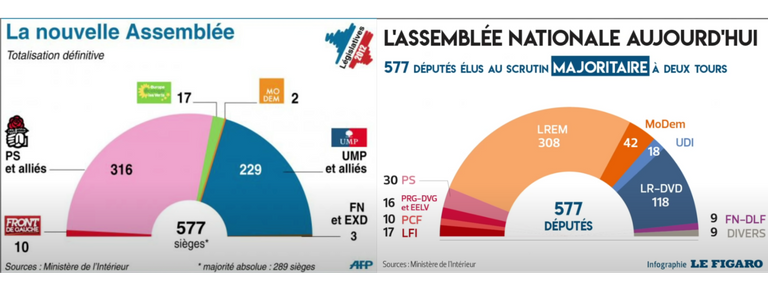
seat change in parliment
Once elected, he built a political party from scratch. He took on politicians from the socialist party and Les Republicains, dividing them further. And his progressive movement was rewarded with a large majority in the national assembly. It went from looking like this in 2012 to this in 2017. Equipped with a mandate, he started to reform France, but his popularity quickly fell. Macron was accused of being out of touch with everyday French people. While Macron has been campaigning at the center, he has largely ruled from the right, following a neoliberal agenda. Macron got rid of the French wealth tax, liberalized the economy, and reformed labor laws, leading to renewed confidence in the French economy. The opposition was quick to label him the president of the rich and protests flared across France.
Railroad pension and police reform, as well as backlash and a proposed tax on fuel to finance the transition to sustainability, started the Yellow Vests movement. The left-wing of his party progressively deserted him and Macron has had to back down from many of his reforms. And the optimism of his campaign has faded. Continuing terrorist attacks have led his government to adopt strict measures to prevent Islamic separatism from pushing back home further to the right. Macron's government is now competing with Le Pen on security measures and his recent anti-separatism law is straight from Marine Le Pen's playbook. One of his ministers even went out to call Le Pen too soft on security issues.
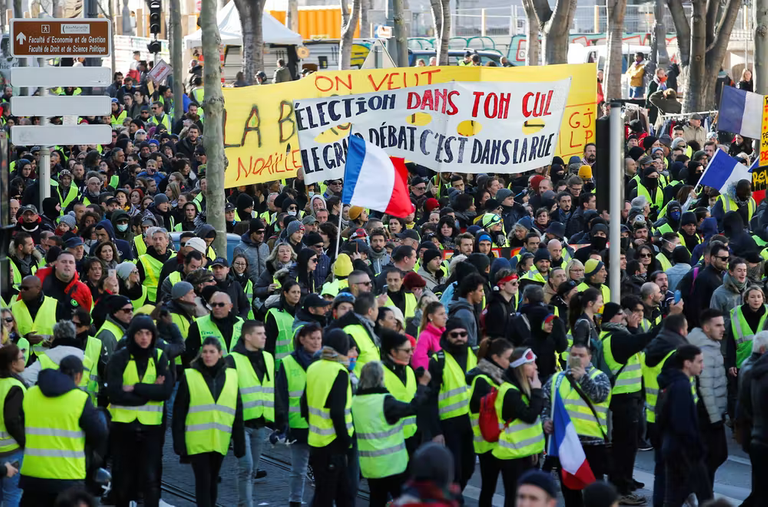
The coronavirus pandemic has damaged economic reform or credentials as French debt has skyrocketed. But Macron is now making a bet that his security measures and the reopening of the economy will be able to win him the votes of the French. however, a shift to the right still threatens to undermine its success. He has pushed away from the voters of the center-left, who brought him into power in 2017, hoping to replace them with the right-wing voters who support his neo-liberal and security agenda. But he is now openly competing with what is left of Les Republicains and Marine Le Pen, which may prove challenging.
Since her election defeat in 2017, Marine Le Pen has modernized and rebranded her party. It dropped some of the more controversial proposals, including those for Frexit and abandoning the Euro. Success in local and regional elections has given her party a chance to prove it can rule, and the ongoing terrorist attacks in France, social discontent and Macron's mishandling of the coronavirus pandemic have played into her hands. Macron's shift to the right has meant that she appears less radical and more eligible with more voters now, considering voting for her Rassemblement National. It's on the other side of the political spectrum. Left-wing parties, including remainders of the socialist party, are considering an Alliance. Macron faces a threat coming from the left, which may deprive him of votes from the center. If the election was held today, he would likely win, but with a much smaller margin than in his 2017 success.
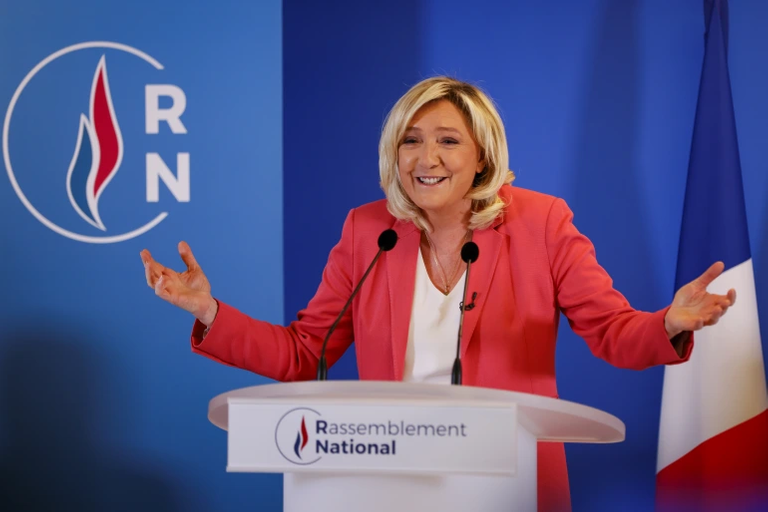
Marine Le Pen
At stake is not only his vision for France, but also that for Europe, Macron is one of the most vocal supporters of further European integration calling for European strategic autonomy, common debt, and a common defense force. Marine Le Pen, while no longer looking to exit the EU is looking to change it, to fit her vision of Europe of nation States. Macron has succeeded in changing French policy, but now he must prove that the alternative he created will stand the test of time.